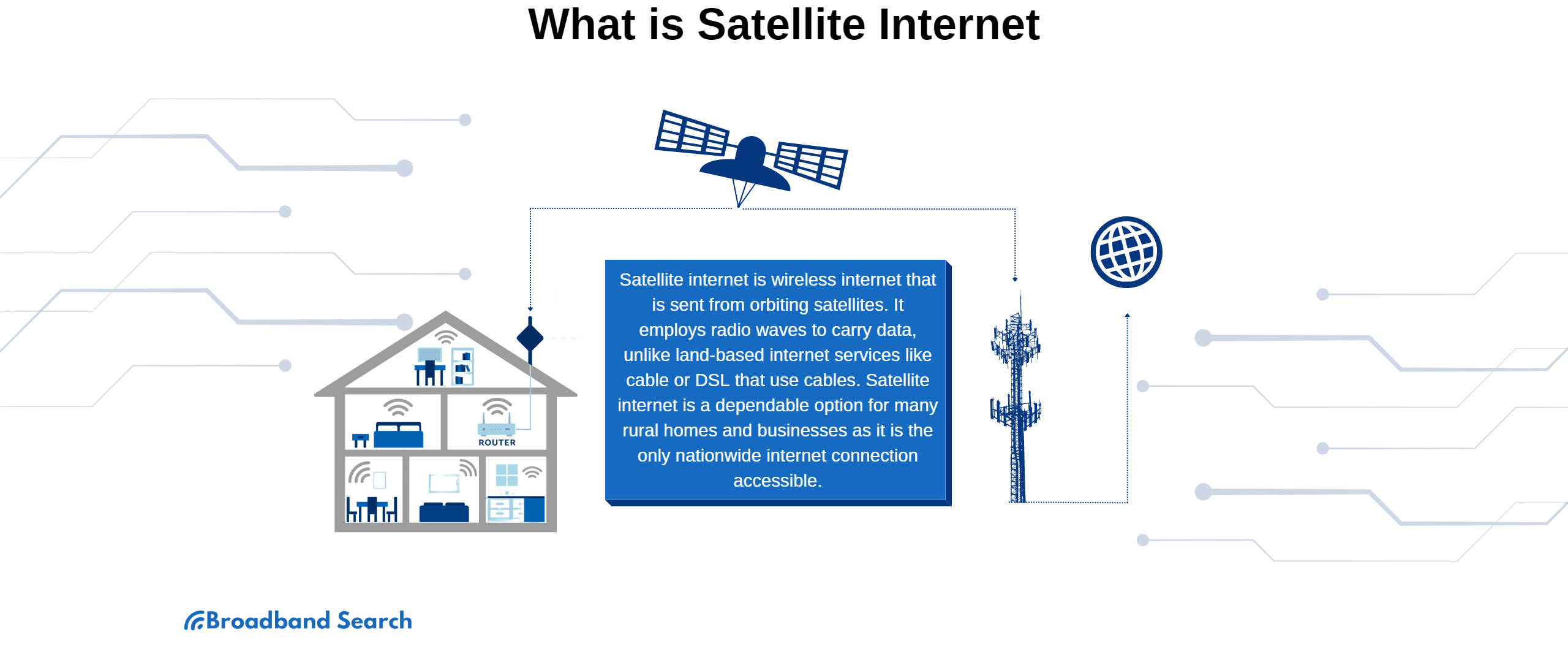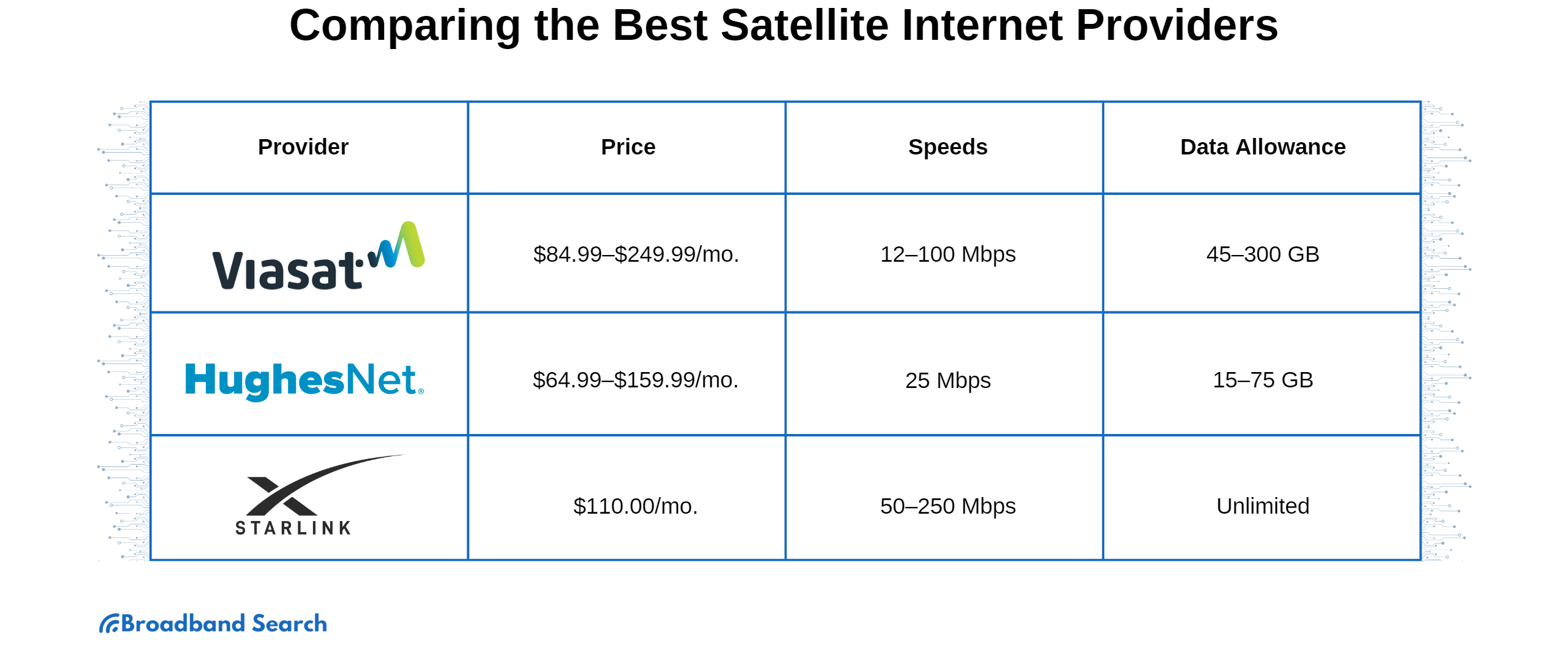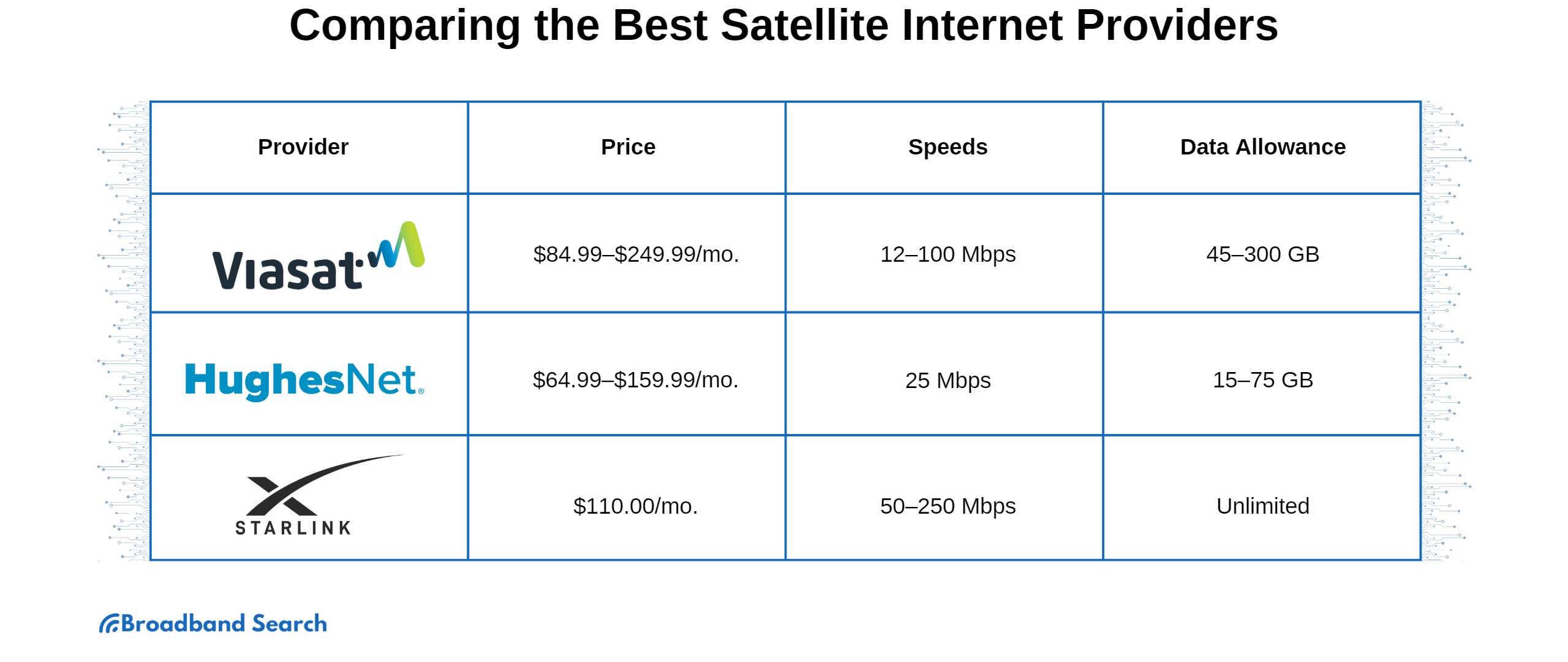Buying a vacation home makes it easy to get away from it all, but chances are good you'll still be packing at least one or two digital devices in your weekender bag. For most people, equipping a beach house or cabin in the woods with satellite broadband is all about balance: being able to stay connected even when the plan is to go off the grid.
That's a good thing considering that having internet access at your vacation property is about more than just the ability to check your email. With a stable internet connection that works even in the most remote locations, you can stay connected to the important people back home, get a little work done after hours, and (most importantly) reach for help in an emergency. Plus, if you're planning to rent out your vacation home, having satellite broadband available for guests is a real selling point.
Getting by with just a phone's data plan is sometimes possible (assuming you have a signal), but it's not ideal. If your vacation home is well off the beaten path, your cellular signal strength may be spotty or nonexistent. At best, an unreliable signal is an inconvenience. At worst, you could end up unable to reach out for help when you need it most.
Luckily, satellite has you covered no matter how rural or remote your vacation home is, and satellite broadband speeds are getting faster every day. Read on for more information about why satellite could be the ideal choice for your property, how plans differ by internet service providers, how part-time satellite contracts can work for you, and must-haves that will help you stay connected.
Deciding on Satellite Broadband
A reliable internet connection can mean the difference between a good getaway and a great one. When you're connected, you can find new places to eat, things to do, and sights to see. You can also give the kids something to do other than bicker after the sun goes down and on bad weather days. And if you're deep in the woods or up in the mountains, you can keep on top of the weather, clear your inbox, and check the traffic report before you hit the road for home.
With satellite broadband, your vacation home or cabin doesn't have to be within the boundaries of an ISP's service area or near a cell tower to get the internet. That's because satellite doesn't rely on cables in the ground or radio waves to deliver data. It's an amazing option for properties that might not otherwise have any way to connect to the internet.

How Satellite Broadband Works
Satellite broadband providers use satellites in orbit to beam a signal to a satellite dish mounted on your vacation home. Whenever you do anything online, a request travels from your dish to the orbiting satellite to your ISP, which then transmits the requested data (which might be your email, a website, or a file) back to the satellite and then to your device via your dish.
Satellite Internet Speeds
The speeds customers get with satellite broadband can vary by both plan and provider, but in general, you can expect download speeds up to 25Mbps and upload speeds up to 3Mbps. Whether you notice any lag due to the time it takes for the signal to bounce from your vacation home to the satellite to the provider and back will depend largely on how you use the internet. The online activities where latency is most obvious are multiplayer gaming and dialing into a VPN for remote work. And how many people really want to do those things on vacation? Satellite speeds are typically more than sufficient for people who are using their internet connection for email and browsing.
Getting Satellite Broadband
When you decide that satellite is the right choice for your vacation home, it's time to start looking at the different internet providers and plans. Because satellite isn't limited by location, you may be choosing between every major provider - in which case it's good to look closely at what they're offering at each price point. Some will have TV or phone bundles that can be the incentive you need to choose one provider over another. Do your research! Sites like BroadbandSearch will give you up-to-date unbiased information about both providers and plans.

Do You Need Always-On Service?
How you use your vacation home will help you narrow down your options when it comes to different plans. If your property is empty for a large part of the year, there are short-term contract options that can reduce your broadband bills. On the other hand, if you rent out your vacation home regularly, having satellite internet available can be a real selling point. Here are some of the pros and cons of different options:
Always-on broadband: If you can find an inexpensive broadband or bundle package that fits your budget or your property will be in use more often than empty, a standard long-term package is probably your best bet. Just be sure you're comfortable paying the bills even when no one is using the service.
Short-term contracts: Some providers offer satellite broadband service on a short-term basis - for example, a 30-day period of service. If your vacation home will be empty for much of the year, it can make more sense to pay a little extra for a short-term contract that you can cancel once you're back home.
Hibernation plans: Some satellite broadband providers offer plans that let you put satellite service on hold whenever your vacation home is unoccupied. You may pay a small monthly fee during these months (and there may be a cap on the number of months you can hold service), but you'll have the flexibility to toggle your broadband on and off as you need it.
Taking the time to figure out the cost versus the benefits of these three options is especially important if you divide up your time equally between your vacation home and your primary residence. New broadband contracts can come with new connection fees and there are no guarantees you'll get the same rate you were paying six months earlier. An always-on connection saves you the hassle of having to repeatedly cancel and renew your broadband service but might cost you more than a short-term or hibernation plan. There are no perfect plans, just the plans that make the most sense given how you and your family use the internet.
Don't Forget the Peripherals
Once you've chosen a provider and a plan, don't forget to pack the peripherals you'll need to actually use your satellite connection! Plan to bring:
Your Smartphone
If you're only going to bring one device with you on your vacation, your phone is the obvious choice. Even if you can't get a signal from your wireless carrier, you can still use your satellite broadband to make calls with Wi-Fi calling or VoIP, text using services like WhatsApp, and go online whenever you want to.
A Wireless Router
Assuming that you want the convenience of a wireless connection while you're on vacation, a wireless router is a must-have. As you research routers remember that they come in a variety of signal strengths! If your ideal getaway includes browsing on the beach, choose a wireless router with the longest possible range.
Your Devices
You may think you won't want to check that work email (or binge-watch a season of your favorite show) while you're getting away from it all but expect the unexpected. Your team back at the office may need you to put out a few fires. Your kids may end up driving you up the wall when one rainy day turns into five. The worst-case scenario is that you pack a laptop, your camera, and a few tablets but never end up turning them on.Durable Cases & Chargers
Delicate devices and the great outdoors don't always play well together. Invest in high-quality, waterproof cases for any device that you'll be taking with you on hikes or to the beach. And don't forget the chargers! There's nothing worse than watching your battery percentage get smaller and smaller, knowing that once you hit zero it's game over.
Is satellite broadband right for your vacation home? As you get farther off the beaten path, check out what HughesNet, Exede, Viasat, and other providers have to offer. You may have every intention of disconnecting, but it's never a good idea to be wholly disconnected.
Ready to learn more? Start comparing satellite broadband providers.
FAQ
What speed can I get from satellite internet?
While specific conditions and locations make it impossible to say exactly how fast your connection will be, an average satellite download speed would be around 25 Mbps and an average upload speed would be around 3 Mbps. As you can see, these are on the very low end of what qualifies for broadband.
Is Starlink a different kind of satellite broadband provider?
Yes. Starlink is the brainchild of Tesla and Twitter owner Elon Musk. His goal with Starlink is to provide faster, more reliable internet connections to those who need it the most in rural areas. The program is still in beta but early indications are that speeds regularly hit over 100 Mbps. If this trend holds, Musk might be onto something.
Can weather affect my satellite internet connection?
Precipitation in the form of snow or heavy rain can definitely degrade or even totally obscure a satellite connection. Depending on your local weather, this can either be a big deal (Seattle) or not much of a deal at all (Phoenix). It’s something to be aware of as you go about the process of choosing the type of internet you want.
What are satellite data caps?
Note that the following doesn’t apply to Starlink, which doesn’t have any form of data cap in place. Other traditional satellite internet providers like Hughesnet and Viasat put a plan limit on data. Once exceeded, your connection speed will be dialed down considerably until the beginning of the next pay period unless you decide to purchase additional data along the way as needed.
How is Starlink different than traditional satellite vendors?
Vendors like Hughesnet broadcast their internet signal from a few satellites that are in high earth orbit. Starlink has chosen a different route and plans to eventually have tens of thousands of low earth orbit satellites in place to broadcast signals. This latter plan is how the service has shown it can generate higher speeds with lower latency.

